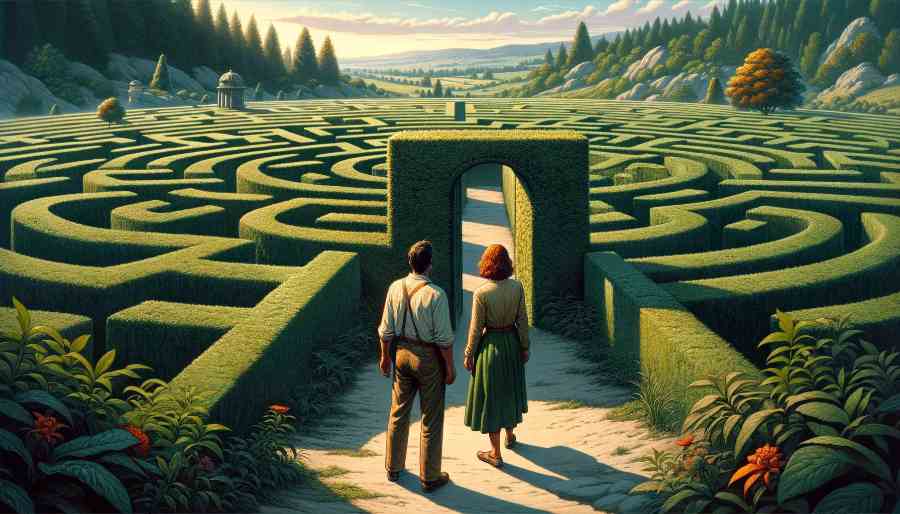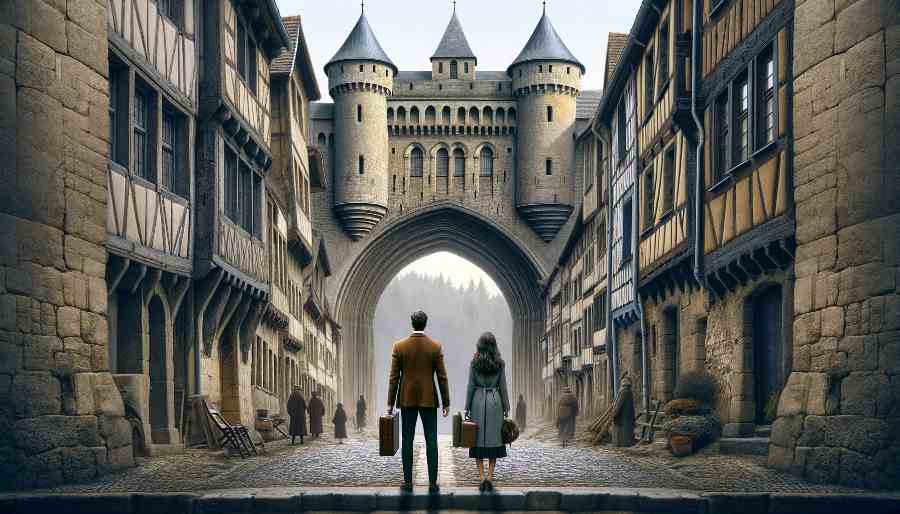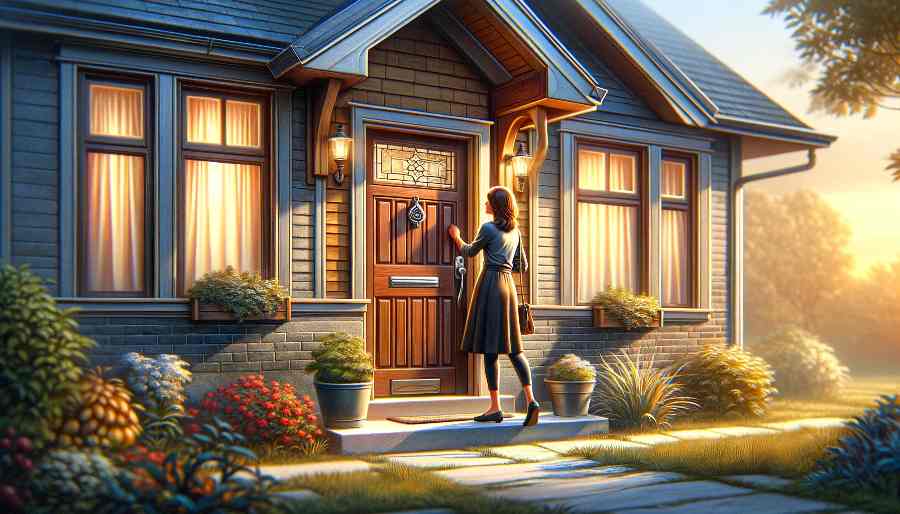Great Story Beginnings
Story beginnings are important, and in terms of getting published, they’re THE most important part of a story. On this page, you'll learn how to start a story in a way that hooks readers and sets up the right expectations.
Skip to topic:
- Facing the blank page
- Hooking your reader
- Conflict
- Character arcs
- Setting expectations
- Examples
- Mistakes to avoid
How to write story beginnings

The beginning of a story is where the reader (or editor) decides whether to keep reading. The beginning also sets the reader's expectations for the story’s middle and ending.
But don't let the importance of your story beginning intimidate you or make it hard to start writing. Some writers freeze up at the sight of a blank page; they feel that everything has to be perfect right away. It doesn't. Remember: even though the beginning is the first part of your story most people will read, it doesn't have to be the first part that you write. And you can always go back and improve your beginning later.
Your first task is to get something—anything—onto that blank page. If it doesn't come out right, then let it come out wrong. No problem. You’ll fix it afterward.
Unless you're very lucky, the perfect story beginning may not occur to you until you're at the revision stage. Then it is time to turn the first page, the first paragraph, the first line of your story into an invitation that the reader can't refuse.
Hooking your reader

How can you capture the reader's attention right away? Here are some strategies to consider:
1) Make the reader wonder about something. For example, let's say you mention that your character is terrified of going to school that day, but you don't say why (yet). The missing information raises a question in the reader's mind and provokes curiosity. The reader will want to read on to find an answer to the question.
2) Start with a problem or conflict. This could be a small problem; for example, your character is about to miss their bus home. Even a small problem gives your main character something to do and creates some activity and momentum right away.
3) Start at an exciting point in the story. Don't be afraid to start your story right in the middle of the action. But provide enough clues to orient your readers and make sure they can follow what's happening.
Story beginnings and conflict

A traditional story plot is centered around a character struggling to overcome a problem or reach a goal. This struggle is the story conflict and gives the story momentum.
Readers turn pages to find out if the character will succeed or fail in their struggle.
The first part of a story sets up the main conflict.
Often, a novel opens with a character in their ordinary life before something happens to shake up the character's world.
For example, your character is nervously rushing to get ready for an important job interview when she gets a text message from a phone number she doesn't recognize. "Your husband doesn't love you," the message says. "He loves me." (The story conflict will center on the breakdown of the character's marriage. The text message just kicked it off.)
In a short story, you don't have much room, so you'll normally want to kick off the conflict right away. The first line of a short story might be: Her phone pinged.
Or, even better: "Your husband doesn't love you."
Or, the short story might start weeks after the character received that text message. The tension has been building between her and her husband, and things have finally reached a breaking point. The first line of the story is: She hurled her wine glass against the wall.
If you're writing a novel, you have more room, so you might spend some time showing the character's marriage before it's shattered by the text message. Then, when the text message arrives out of the blue, readers will understand what it means for the character.
Tip: If you don't start the main story conflict right away, you can keep the reader's interest by introducing mini-conflicts. For example, before the main character gets the text message about her husband's affair, she might be worried she'll be late to her job interview. The opening line might be: I'll never make it, she thought, glancing at the oven clock.
Story beginnings and character arcs

Another job of your story beginning is to introduce your main characters.
When I say 'introduce', I DON'T mean writing a formal introduction like this:
Olga was an attractive 35-year-old bank teller with a warm, extroverted personality, though she could also be impulsive and had a quick temper that sometimes got her in trouble...
That kind of introduction is a bit boring, and it doesn't make readers feel like they know the character.
Instead, you can SHOW the character doing and saying things that reveal what they're like.
Does Olga have trouble controlling her temper? Instead of saying so, you can show losing her temper during a job interview, sabotaging her chances of getting the job.
Readers will get to know your character the same way we get to know people in real life—by watching them in action.
The first part of a story is a chance to show:
- character flaws that will cause the story conflict, or make it worse
- character strengths that will allow them to overcome challenges during the story
- aspects of the character (habits, behaviors, beliefs, ways of thinking) that will change by the story's end.
Stories are generally more satisfying when the character evolves or changes in some way over the course of events. There's a "Before" version of the character who enters the story conflict, and an "After" version who emerges.
During the beginning of the story, you can show a "Before" version of the character in a way that will stand in contrast with the "After" version.
Setting readers' expectations

So, we've already talked about several tasks of your story beginning, including hooking readers' interest, introducing your main character and their world, and setting up your story conflict.
You don't have to accomplish all of this in your opening line! But you can keep these tasks in mind as you're writing the first part of your story.
Another task of your beginning is to set readers' expectations for the rest of the story.
What kind of story is it going to be? If it's a horror novel, readers will read with one set of expectations, and if it's a romantic comedy they'll read with another.
Readers who believe they've signed up for a romantic comedy will be upset if all of the characters are brutally slaughtered by a serial killer.
Does your story take place in the real world, or in a version of the world where magic exists? If there's magic, what rules and limitations does the magic have?
Let's say you're writing a World War II novel. Your hero, an American spy, is captured by the Germans, but escapes by summoning a dragon and flying away on its back.
If the dragon rescue occurs on Page 1, that's fine.
Also fine if it occurs on Page 254 but readers have known all along that the hero is a famous dragon tamer.
On the other hand, imagine that the novel reads as a realistic portrayal of World War II until Page 254, when there's a surprise dragon rescue. Readers will feel betrayed, like you've switched the rules on them.
They won't believe in the dragon rescue because you haven't trained them to believe in it.
As a writer, you get to set the rules of the game. But readers want to understand the rules, or else the game doesn't feel fair.
Examples of story beginnings

Let's look at some examples of story beginnings and the work each one is doing.
Example: BELOVED
BELOVED by Toni Morrison is a novel about characters who are literally haunted by the trauma of slavery. Here are the first two sentences.
"124 was spiteful. Full of a baby's venom."
In the first pages of BELOVED, readers learn that 124 is a house belonging to a formerly enslaved woman in 1873 Cincinnati. The house is haunted by the ghost of the woman's dead child.
This story beginning:
- provokes curiosity
- establishes the rules of this story's world (ghosts exist).
- immediately set up conflict.
Example: ELEGY FOR APRIL
Here's the opening sentence of Benjamin Black's mystery novel, ELEGY FOR APRIL:
"It was the worst of winter weather, and April Latimer was missing."
In one sentence, Black both sets up the novel's atmosphere and lets us know what the story's going to be about. The novel's first pages show April's friend Phoebe searching for April in foggy weather. Phoebe's actions start the plot moving right away, while Black's evocative descriptions of the fog create a sense of mood. Black introduces characters important to the story by showing them in action.
Example: "Gryphon"
Charles Baxter's short story "Gryphon" is about an eccentric and possibly sinister substitute teacher who disrupts the main character's world. Here's the first line:
"On Wednesday afternoon, between the geography lesson on ancient Egypt's hand-operated irrigation system and an art project that involved drawing a model city next to a mount, our fourth-grade teacher, Mr. Hibler, developed a cough."
In one sentence, Baxter shows the main character's ordinary world before the substitute teacher disrupts it—and shows the event that will set the plot in motion: a cough, that will get worse and cause Mr. Hibler to stay home, setting the stage for the substitute teacher's arrival.
Example: KLARA AND THE SUN
Here's the first line of Kazuo Ishiguro's novel KLARA AND THE SUN:
"When we were new, Rosa and I were mid-store, on the magazines table side, and could see through more than half of the window."
This sentence provokes curiosity because it's strange. "When we were new." What does that mean?
Quickly, readers gather that the novel is written from the point of view of a robot named Klara in a future version of our world.
The opening pages show Klara's daily existence in the robot store before Klara is sold to a family and the story's real conflict begins.
Example: "Ship in a Bottle"
Elizabeth Strout's short story "Ship in a Bottle" is about an 11-year-old girl named Winnie, who is forced to choose sides in a conflict between her sister Julie and her mother, Anita. Here's the story's opening line (Anita is speaking to Julie):
"You'll have to organize your days," Anita Harwood was saying, wiping at the kitchen counter.
By starting with dialogue, Strout pulls us right into the scene. She also introduces the character of Anita, showing her trying to control Julie's life. And she immediately sets up the conflict between Anita and Julie.
Example: SPINNING SILVER
Naomi Novik's novel SPINNING SILVER is based on the fairy tale "Rumpelstiltskin". Here's the first sentence:
"The real story isn't half as pretty as the one you've heard."
The novel's opening page goes on to remind us of the traditional version of "Rumpelstiltskin". It lets us know what kind of novel this is going to be—a fairy-tale retelling. And it provokes our curiosity by hinting that the "Rumpelstiltskin" we know has been sanitized in some way. Now we're wondering what the REAL story is...
Mistakes to avoid

Here are some common problems to watch out for as you’re revising your story beginning:
1) Starting with background information. For example, inexperienced writers sometimes start out with little biographies of their main characters. These story beginnings feel a little bit like Wikipedia articles about people who don't exist. They are not very interesting to read. Don't feel like you have to provide all of the information upfront. You can start your story with a scene or action and gradually weave in background details when/if they become necessary for the reader's understanding.
2) Starting too early in the story. If your story seems to take a long time to get interesting, consider starting right at the interesting point. You might have to lop off a few pages. Don't feel bad about throwing away part of your draft—those pages you throw away are not wasted work. They are part of a necessary process of exploration that showed you where your story has to go.
TIP: Someone once said that most short story manuscripts can be improved by cutting the first page, and most novel manuscripts by cutting the first chapter. See if you can improve your beginning by cutting.
3) Starting a different story. The creative process often leads writers down unexpected paths. You start out with a certain story in mind then are surprised at where it leads. As a result, the story's beginning (even if it seemed perfect when you wrote it) may not be an ideal fit with the rest of the story. When that happens, ask yourself: which version of the story do you like better? The version you started out writing? Or the version you ended up with? Based on your answer to this question, you know which part of the story you have to rewrite.
Click here to get our free fiction-writing course, Beginnings, Middles, and Endings.

How to Start a Story - Next Steps
Join our free email group for more writing tips and ideas. You might also enjoy: